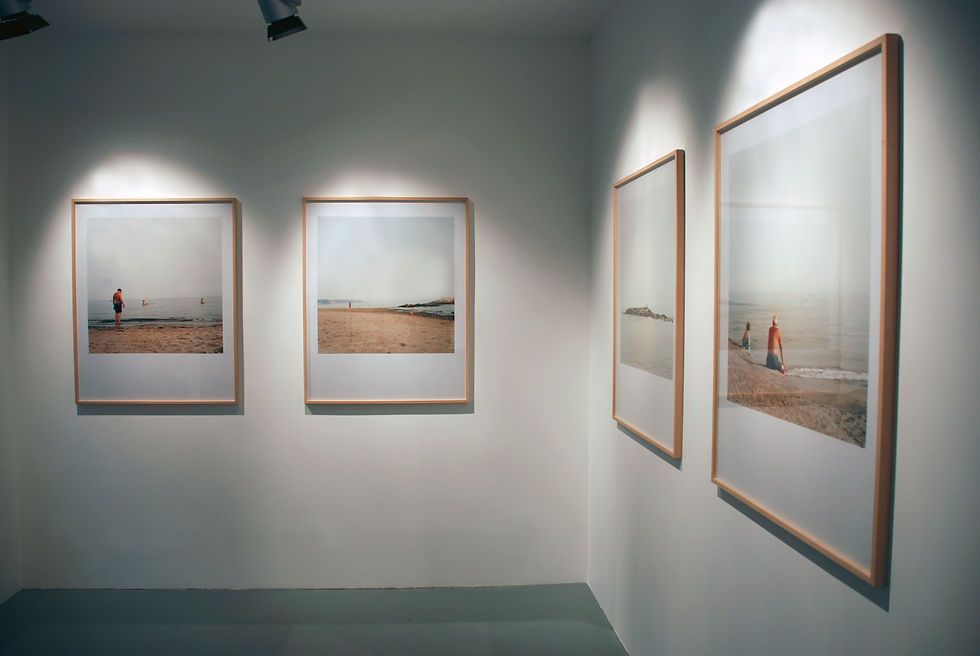Following government announcements, 22.48 m2 is due to temporarily close its doors to the public until December 2, but is looking forward to seeing you online on Facebook / Twitter / Instagram. To be informed of exclusive content, subscribe to our newsletter. ❤️

Exhibition view

L'ennui #8, 2009, c-prints, 31,5 x 39,4 inches

L'ennui #9, 2009, c-prints, 31,5 x 39,4 inches

L'ennui #5, 2009, c-prints, 31,5 x 39,4 inches

Exhibition view

Exhibition view

Exhibition view

Exhibition view
#12
Gerhard Klocker
L'ENNUI
Solo show
Text by Thomas Schiretz (translated by Yvonne Ruescher)
17/11/2011 -07/01/2012
Far away - so close.
A perfect day at the sea. A perfect day in the studio. Gerhard Klocker shows us distillates that couldn’t be more dense, unyielding or ethereal. Endowed with an ingenious way of seeing and inspired by a wonderful hour, an hour in which the light of the sea, of the sky and the beach reach nearly the same intensity starting to turn monochrome, he brings time to a stand still and shows us fermatas and breaks. Titled “L'Ennui” (boredom), Gerhard Klocker's 9-part-photographic work came to life in the afternoon hours of one September day on the coast of Liguria, not far from French border.
Is boredom genuine, or does it rather refer to an absence - and if so - an absence of what?
Maybe the absence of a verb? With “L'Ennui” Klocker turns boredom into one of the most beautiful, meaningful and finest subjects imaginable. It's not the boredom of Sunday afternoon strolls, it's boredom as a form of pleasure. Contrary to Schopenhauer for whom happiness was lack of boredom, boredom here means a state of lasting happiness. In fact, Klocker's works show us, albeit in different ways, that there are ways to get out, to escape the frenzy of a rigorous and unrelenting consumerism. They contribute, quite extraordinarily, to the world's deceleration. They allow us to breathe, delightfully freeing us from old and new myths, and they convey a sense of time that's nearly indescribable.
The verbs recede and fade out, physical efforts and tensions visibly decrease, mental and sensory skills are tucked away, and everything seems strangely shifted, revealing a dimension that touches on the ultimate principle of human existence. What's so moving in Klocker's works comes less from the specious emotiveness of a uniquely captured instant, but rather from something profoundly human: his works relate life's inexorable, fragile and vulnerable side, and with their weight they defy monotony, callousness, small-mindedness and “fatal boredom”. It's as if the artist wanted to relieve the world of it's abysmal gravity, and restore the lightness it had forever carried. It feels as if one looked through a window and saw the world's dissonances blending into harmony, detached, and wholeheartedly serene.
Thomas Schiretz
(translation by Frank's)
This event will be presented silmultaneously with the event #13
